Tech
Sign up for our newsletter
We summarize the week's scientific breakthroughs every Thursday.
-
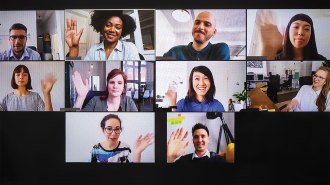 Science & Society
Science & SocietyVideocalling needed more than a pandemic to finally take off. Will it last?
Zoom and social distancing ushered in the futuristic videophone fantasy AT&T wanted and consumers rejected for decades.
-
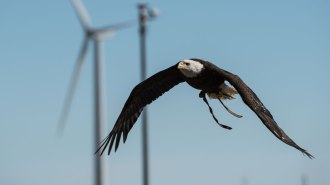 Animals
AnimalsHow researchers can keep birds safe as U.S. wind farms expand
Tracking bald eagle abundance and migrating whooping cranes provides a clearer picture of where wind turbines could be safely built.
By Jack J. Lee -
 Tech
Tech‘Pipe Dreams’ flushes out hope in an unexpected place: the toilet
A new book shows how reimagined toilets will allow humans to use pee and poop as natural resources.
-
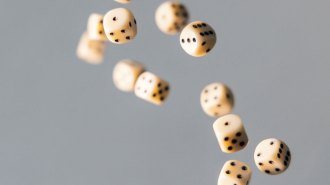 Tech
TechA new laser-based random number generator is the fastest of its kind
A new laser’s chaotic light beam lets the device generate multiple number sequences at once, similar to throwing multiple dice at a time.
-
 Chemistry
ChemistryChemists are reimagining recycling to keep plastics out of landfills
Recycling plastics is really hard, and usually creates low-quality materials that aren’t good for much. Chemists are trying to change that.
-
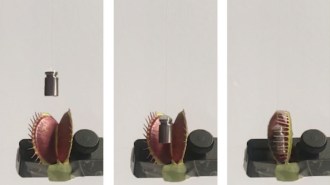 Tech
TechA robot arm toting a Venus flytrap can grab delicate objects
By attaching electrodes to the plant’s leaves, researchers found a way to snap its traps shut on command.
-
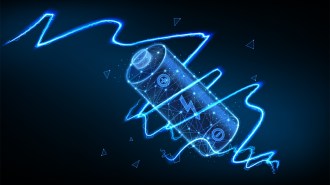 Chemistry
ChemistryZinc-air batteries are typically single-use. A new design could change that
Swapping out the electrolyte in zinc-air batteries helps these next-gen power sources last longer.
-
 Chemistry
ChemistryA new iron-based catalyst converts carbon dioxide into jet fuel
Jet fuel made from carbon dioxide could one day reduce pollution from air travel.
-
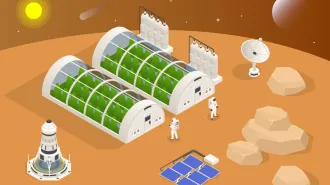 Planetary Science
Planetary ScienceFarming on Mars will be a lot harder than ‘The Martian’ made it seem
Lab experiments developing and testing fake Martian dirt are proving just how difficult it would be to farm on the Red Planet.
-
 Earth
EarthTechnology and natural hazards clash to create ‘natech’ disasters
Hurricanes, wildfires and nature’s other extreme events are increasingly causing damage to infrastructure crucial for safety and communication.
By Megan Sever -
 Tech
TechA smartwatch app alerts users with hearing loss to nearby sounds
With a new smartwatch app, users who are deaf or hard of hearing can get alerts that an alarm is going off or someone is knocking at the door.
-
 Astronomy
AstronomyTurning space images into music makes astronomy more accessible
Music created from telescope data helps people with blindness and visual impairments experience the wonders of astronomy, and could aid research.